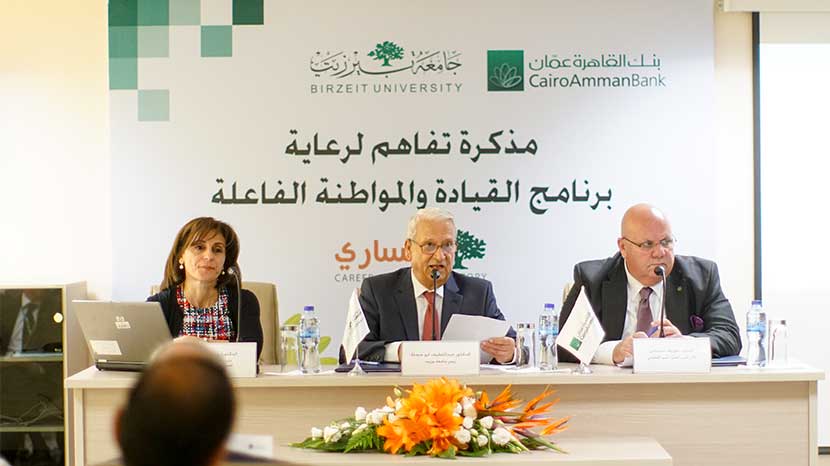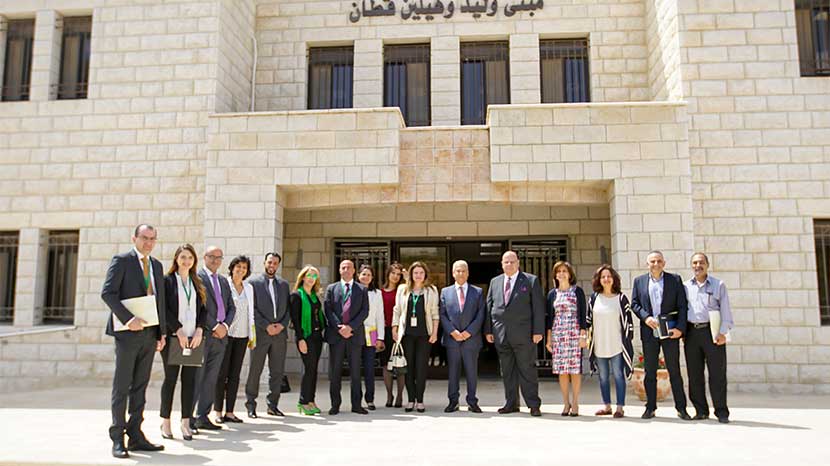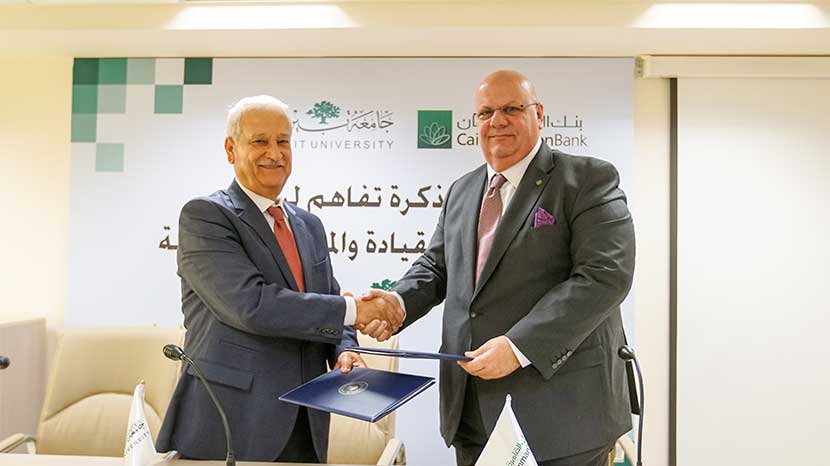Cairo Amman Bank to support new student leadership program
Birzeit University and Cairo Amman Bank signed on May 3, 2017 a memorandum of understanding to support the Student Leadership and Active Citizenship Program, a learning journey for Birzeit University students.
The program aims to create a flagship co-curricular student leadership and civic engagement program that empowers them to take charge of their own future, challenge the status quo, and enact needed change.
Birzeit University president Abdullatif Abuhijleh expressed his enthusiasm over the new partnership, underscoring that the university seeks to expand its cooperation with the local community. He said the university seeks to address gaps encountering graduates as they transition to the labor market by bringing together academic research, industry experience and leadership best practices.
The new cooperation, according to Abuhijleh, will help the university promote the values of pluralism, good citizenship and affiliation. It will also empower students in leadership and innovation and enable them to contribute to the national process of socio-economic development.
Regional Manager and the Vice-Chairman of the Board of Directors at Cairo Amman Bank Joseph Nesnas reaffirmed the bank’s role towards youth and education. Young people are “one of the building blocks of any nation,” he commented.
Nesnas said that the new program on leadership and good citizenship tackles an important issue, creating a generation of leaders and entrepreneurs who then impact their local communities.
“We cannot separate a good citizen from the whole development process of societies,” he said. “Therefore, we encourage such efforts to generate increased awareness, confidence and value for difference, improved understanding for critical thinking and increased employability.”
Vice President for Planning and Development Mirvat Bulbul offered a conceptual and programmatic framework of the learning journey of the program. According to Bulbul, the learning journey consists of seven main learning stations, each delivered through 21 face-to-face hours for each station, three-hour sessions every other week, and community-based activities.










